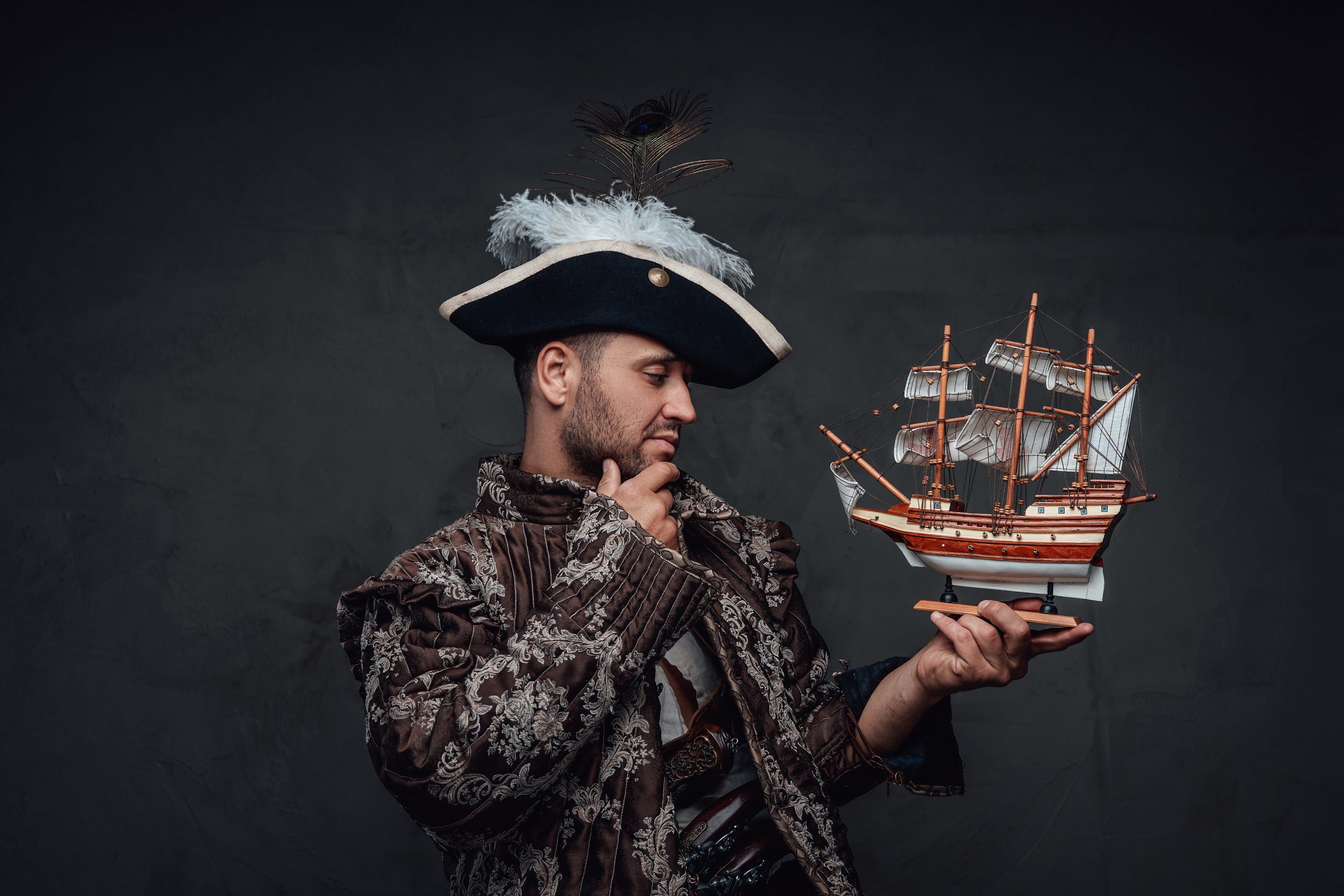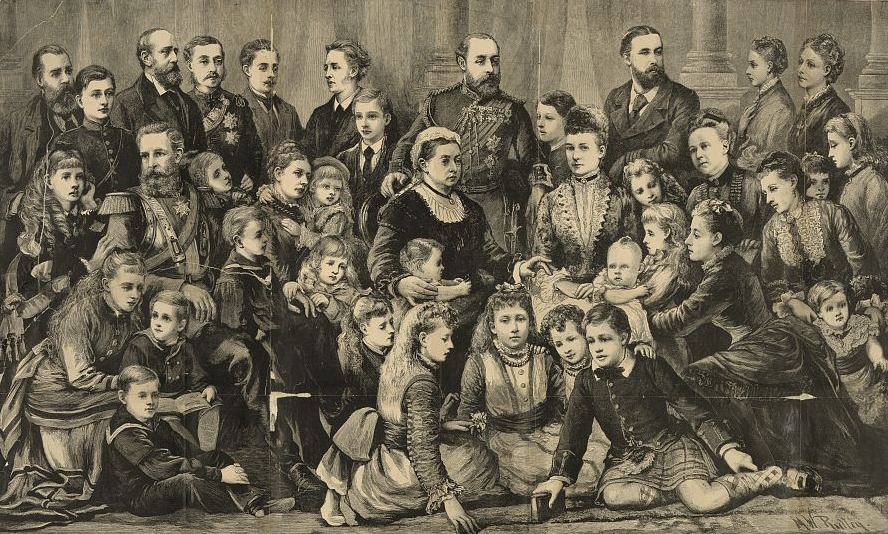
History is a treasure trove of stories, from epic battles to whispered intrigues, from revolutionaries to rogues. To dive into history is to uncover the threads that weave our collective past. Here are 10 fascinating historical themes that captivate the imagination, each with tales so engaging, you’ll feel transported through time!
10. The Golden Age of Piracy
Swashbuckling Rebels of the High Seas

Source: Mary Harrsch, Public domain, via Wikimedia Commons
The image of pirates evokes adventure, danger, and treasure. But did you know the so-called “Golden Age of Piracy” (1650–1730) was partly fueled by unemployed sailors post-wars? Famous names like Blackbeard and Anne Bonny became legends, but piracy was a brutal business. Caribbean strongholds like Nassau operated as pirate utopias, complete with their own codes of conduct.
Did you know? Blackbeard didn’t bury treasure—most pirates spent their loot as quickly as they stole it.
9. The Great Plague of London (1665–1666)
When Rats and Fleas Ruled the Streets

Source: See page for author, CC BY 4.0, via Wikimedia Commons
Before modern sanitation, outbreaks of plague devastated cities. In London’s Great Plague, 15% of the city’s population died within months. Red crosses painted on doors warned others to stay away. The wealthy fled, leaving the poor to suffer. Meanwhile, makeshift “plague doctors” donned eerie bird-like masks, believing herbs stuffed in the beaks could purify the air.
Did you know? The famous nursery rhyme “Ring Around the Rosie” may have origins in this grim period.
8. The Salem Witch Trials
Fear, Hysteria, and the Perils of Gossip

Source: Joseph E., ca. 1837-1914, artist., Public domain, via Wikimedia Commons
In 1692, the Puritan town of Salem, Massachusetts, fell into chaos when accusations of witchcraft spread like wildfire. Twenty people were executed, mostly women, based on flimsy evidence and superstition. The trials showcased the dark side of groupthink and the danger of baseless accusations.
Did you know? The “witches” were often victims of personal vendettas or land disputes.
7. The Renaissance
The Age of Rebirth (and Genius)

Source: Michael Barera, CC BY-SA 4.0, via Wikimedia Commons
The Renaissance was a cultural explosion of art, science, and literature from the 14th to the 17th century. Masters like Leonardo da Vinci and Michelangelo created works that still leave us awestruck. It wasn’t just about art—this era marked the birth of modern science, with figures like Galileo challenging old beliefs.
Did you know? The Mona Lisa was once stolen in 1911 and became a sensation partly because of the theft!
6. The Silk Road
The First Global Superhighway

Source: Kaidor, CC BY-SA 4.0, via Wikimedia Commons
Long before planes and the internet, the Silk Road connected the East and West for trade, ideas, and culture. Spanning 4,000 miles, it was a highway of spices, silk, and stories. Marco Polo’s travels along these routes inspired European explorers centuries later.
Did you know? The Silk Road didn’t just trade goods—it also spread the Black Death to Europe.
5. Prohibition Era (1920–1933)
The Booze Ban That Backfired

Source: See page for author, Public domain, via Wikimedia Commons
When the U.S. banned alcohol, it inadvertently created a booming black market. Speakeasies popped up in basements and backrooms, and gangsters like Al Capone made fortunes smuggling booze. Ironically, Prohibition only increased alcohol consumption as it became rebellious and fashionable.
Did you know? To identify bootleg alcohol, some government agents poisoned industrial spirits—causing thousands of deaths.
4. The Victorian Era
Prim, Proper, and Shockingly Strange

Source: M.W. Ridley. Illustration from Frank Leslie’s illustrated newspaper, v. 44, no. 1137 (July 14 1877)., Public domain, via Wikimedia Commons
Queen Victoria’s reign (1837–1901) is often associated with strict morals and lavish fashion, but the era had its quirks. Victorians were fascinated by the macabre—post-mortem photography (taking pictures of deceased loved ones) became a bizarre trend. Meanwhile, rapid industrialization changed everything from transportation to hygiene.
Did you know? The phrase “saved by the bell” might come from Victorian fears of being buried alive.
3. Ancient Egypt
Pyramids, Pharaohs, and Mummies—Oh My!

Source: Juan Carlos Fonseca Mata, CC BY-SA 4.0, via Wikimedia Commons
The civilization that built the pyramids has fascinated us for millennia. Ancient Egyptians worshipped gods with animal heads, believed in elaborate afterlives, and wrote in mysterious hieroglyphs. The Great Pyramid of Giza, built around 2560 BC, remains one of the Seven Wonders of the Ancient World.
Did you know? Cleopatra wasn’t Egyptian; she was of Greek descent from Alexander the Great’s lineage.
2. The Viking Age
Raiders, Traders, and Explorers

Source: Silar, CC BY-SA 4.0, via Wikimedia Commons
The Vikings were more than just fierce raiders—they were skilled sailors and savvy traders. From 793 to 1066, their longships roamed from Scandinavia to North America. Viking culture prized storytelling, with sagas passed down for generations.
Did you know? Viking helmets never had horns. That’s a myth invented in the 19th century!
1. The Space Race
One Giant Leap for Mankind

Source: various, CC BY-SA 4.0, via Wikimedia Commons
In the mid-20th century, the Cold War rivalry between the U.S. and the Soviet Union ignited the Space Race. From Sputnik, the first satellite, to Neil Armstrong’s moon landing in 1969, this period of innovation captured the world’s imagination. It was a clash of ideologies, but also a triumph of human ingenuity.
Did you know? The Apollo 11 astronauts had to declare moon rocks at U.S. Customs when they returned.
Final Thoughts
History isn’t just dusty dates and names—it’s a tapestry of stories that shaped who we are today. From daring pirates to daring astronauts, these themes remind us of the courage, folly, and genius of humanity.


